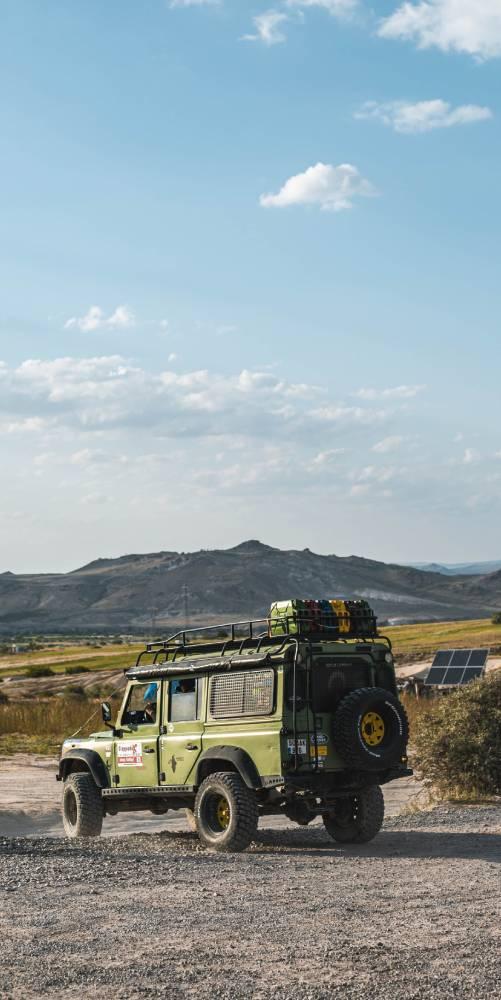This guide promotes the seven principles of LEAVE NO TRACE ethics for minimal impact travel while four-wheel driving. It is intended to help individual recreational and commercial drivers, tour operators, and their clients improve their environmental management and reduce their impact on the land.
IMPORTANCE:
Minimal impact techniques are important not only for environmental protection and the preservation of wilderness but also for the enjoyment and positive experience of outdoor enthusiasts.
Tip:
When combining, wheeling travel with hiking trails, the question always comes up: How do you keep moving forward and not go back to the truck?
That’s where trucking services come to the rescue. If you’re traveling in one vehicle, you can use a driver who will haul your vehicle, to your desired destination. If you are traveling in a group, it would be more rational to use the transport services of the platform to transport the car.
Plan Ahead and Prepare:
- Research your destination before you leave home.
- Familiarize yourself with the regulations for the area you wish to travel in.
- Obtain permission from the landowner or the land management agency.
- Keep group sizes small and avoid peak use times.
- Plan your trip based on the capabilities of your vehicles and drivers.
- Consider taking a four-wheel driving course if necessary.
- Obtain and learn how to read maps before you start.
- Prepare for extreme isolation, weather hazards, and emergencies. Check for these ahead of time.
- Bring plenty of drinking water and emergency equipment, including a satellite phone, First Aid Kit, EPIRB, GPS, and fire extinguisher.
- In case of an emergency, stay with your vehicle.
- Notify a responsible party of your return time from isolated trips.
- Ensure your vehicle is in good working condition.
- Check that your vehicle has basic recovery tools, and that they are four-wheel drive compatible.
- Repackage food to minimize waste, and bring sturdy rubbish bags or sealable plastic containers.
- Bring a fuel stove and basic shelter.
- Carry a strong trowel for digging toilets.


Travel and Camp on Durable Surfaces:
- Stay on established tracks.
- Do not create new tracks.
- Durable surfaces include established tracks and campsites, rock, gravel and dry grasses. Take care where you step and/or drive.
- Slow down to reduce impact on soft surfaces like mud.
- Avoid driving in muddy conditions.
- Do not take short-cuts.
- To avoid creating new impacts, cross creeks only at existing fords and use caution on depth and current. Do not cross otherwise.
- Protect water sources by camping at least 100 metres from rivers and billabongs.
- Park your vehicle at least 100m away from water on durable ground.
- Good campsites are found, not made. Altering a site is not necessary.
- Clean-up, naturalise and disguise your campsite upon breaking camp.
In popular areas:
- Concentrate use on existing tracks and campsites.
- Avoid driving on muddy tracks. Go back if need be.
- Keep campsites small. Focus activity in areas where vegetation is absent.
Help regenerate sites which show beginnings of impact.
In natural areas:
- Do not drive. Walk.
- Disperse use to prevent the creation of campsites and footpaths.
- Avoid places where impacts are just beginning.
- Stay only one night
Dispose of Waste Properly
- Inspect and clean up your campsite and rest areas for rubbish and spilled food. Do not bury food waste. Pack and carry out all rubbish and leftover food. This includes organics.
- Do not burn rubbish.
- Carry a sealable personal ashtray if you smoke. Do not leave butts on the ground.
- Use developed toilets where available.
- In un-developed areas, use a strong trowel to deposit solid human waste in cat-holes dug in the ground, 10-15cm deep at least 100m from water, camp and tracks. Cover and disguise the hole when finished.
- If 4Wdriving, consider carrying a portable toilet.
- Pack out all hygiene products in a suitable container. (These include toilet paper, feminine hygiene products and nappies.)
- To wash yourself or your dishes, carry water 100 meters from streams and pools and use small amounts of biodegradable soap.
- Scatter strained dishwater.
Leave What You Find
- Respect Indigenous art and other sites of cultural significance.
- Do not touch rock art. Always get appropriate permission from Traditional Owners to visit sites of cultural significance.
- Preserve the past: observe but do not touch cultural or historic structures and artifacts.
- Leave rocks, plants and other natural objects as you find them.
Avoid introducing or transporting non-native species – do not transport firewood and check for stowaway animals before you leave an area. - Know non-native species and report sightings of them to appropriate sources.
- Do not travel through Quarantine Areas.
- Clean your vehicle (including tyres), boots and camping gear of mud which may contain dieback fungus or invasive weed seeds.
- Check clothing and all gear and burn or dispose of all hitchhiker type seeds.
Minimise the Impact of Fire
- Fires can cause devastating and lasting impacts to the bush.
- Check area regulations for fire bans.
- Use a lightweight fuel stove for cooking and enjoy a candle or gas lantern for light.
- Where fires are permitted, use established fire rings, fire pans, or mound fires. Do not create new
fire-pits. - Keep fires small. Wood is a habitat for fauna and birds. Use only small sticks that can be broken by
hand. - Burn all wood and coals to ash. Put the fire out completely. Clean out campfires rings after use.
- Consider carrying a fire pan and wood from a local sustainable yield in the back of your vehicle.
- Consider using candles for light instead of fire. Don’t leave wax residue.
- Be careful of improper cigarette butt disposal. Take butts with you.
Respect Wildlife
- Observe wildlife from a distance. Do not follow or approach them.
- Know about local animal habitats and behaviour to avoid disturbance.
- Never feed animals or birds. Feeding wildlife damages their health, alters natural behaviours, and
exposes them to predators and other dangers. - Control pets at all times or leave them at home. They are not allowed in National Parks.
- Avoid wildlife during sensitive times: mating, nesting, and raising young.
- Drive slowly and quietly. Avoid revving the engine.
- Take note of all wildlife-warning road signs and be alert.
- Avoid driving at night, dawn or dusk, as this is when animals are most active.
- Slow down and let animals move off the track.
- If you hit an animal stop to check if it is alive. Some local vets will treat injured wildlife and turn them
over trained wildlife carers.
Be Considerate of Your Hosts and Other Visitors
- Respect all Indigenous people and their country.
- Respect the wishes and regulations of all Hosts. (e.g. Indigenous, pastoral, land managers and locals)
- Check with land-owners for permission to travel across their land.
- Read and obey signage. Leave gates as found.
- Many people will follow after you – help to keep the country healthy.
- Respect other visitors and protect the quality of their experience.
- Be courteous. Give way to others on tracks and roads.
- Enjoy nature’s sounds. Keep noise levels down

